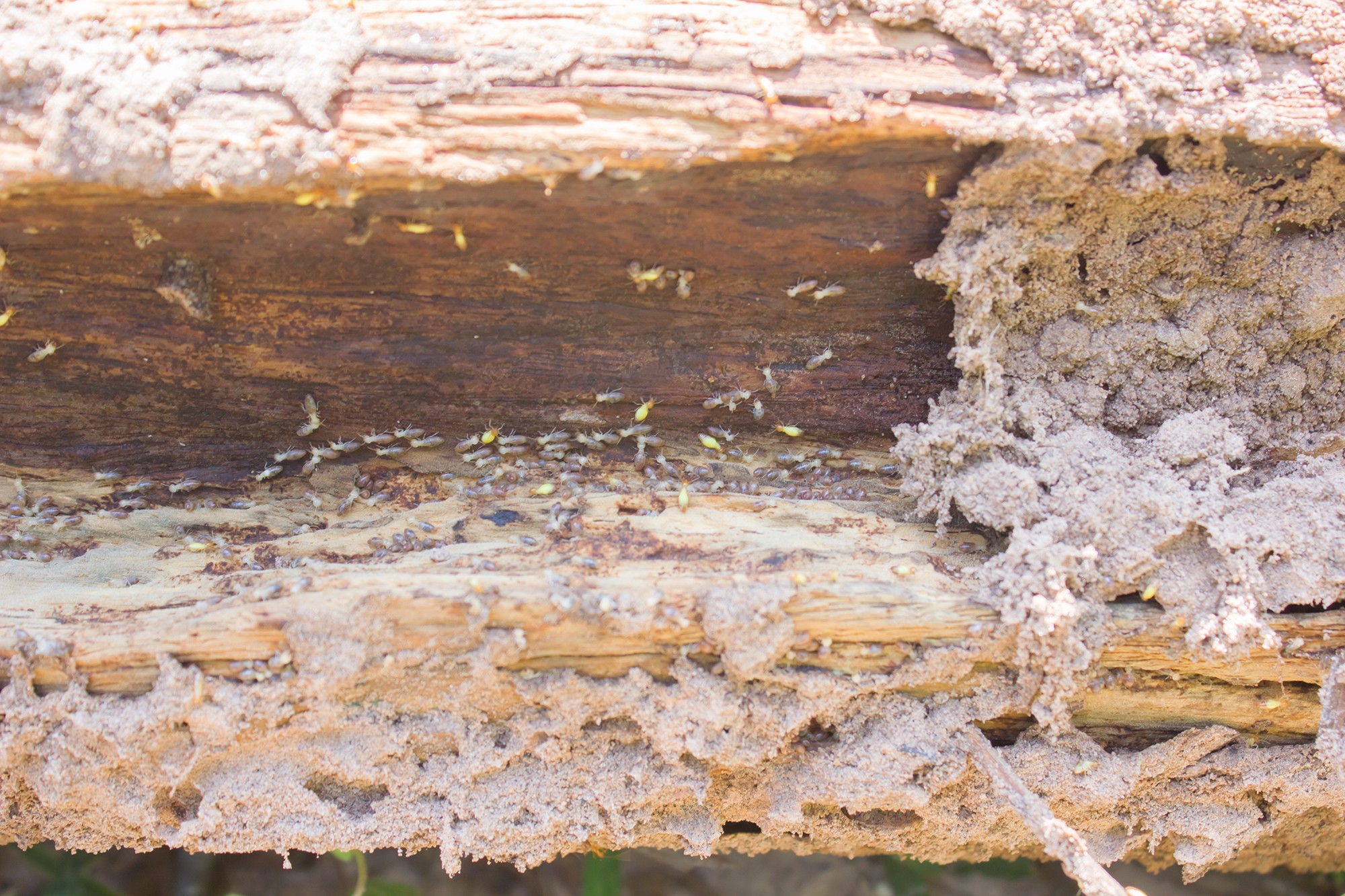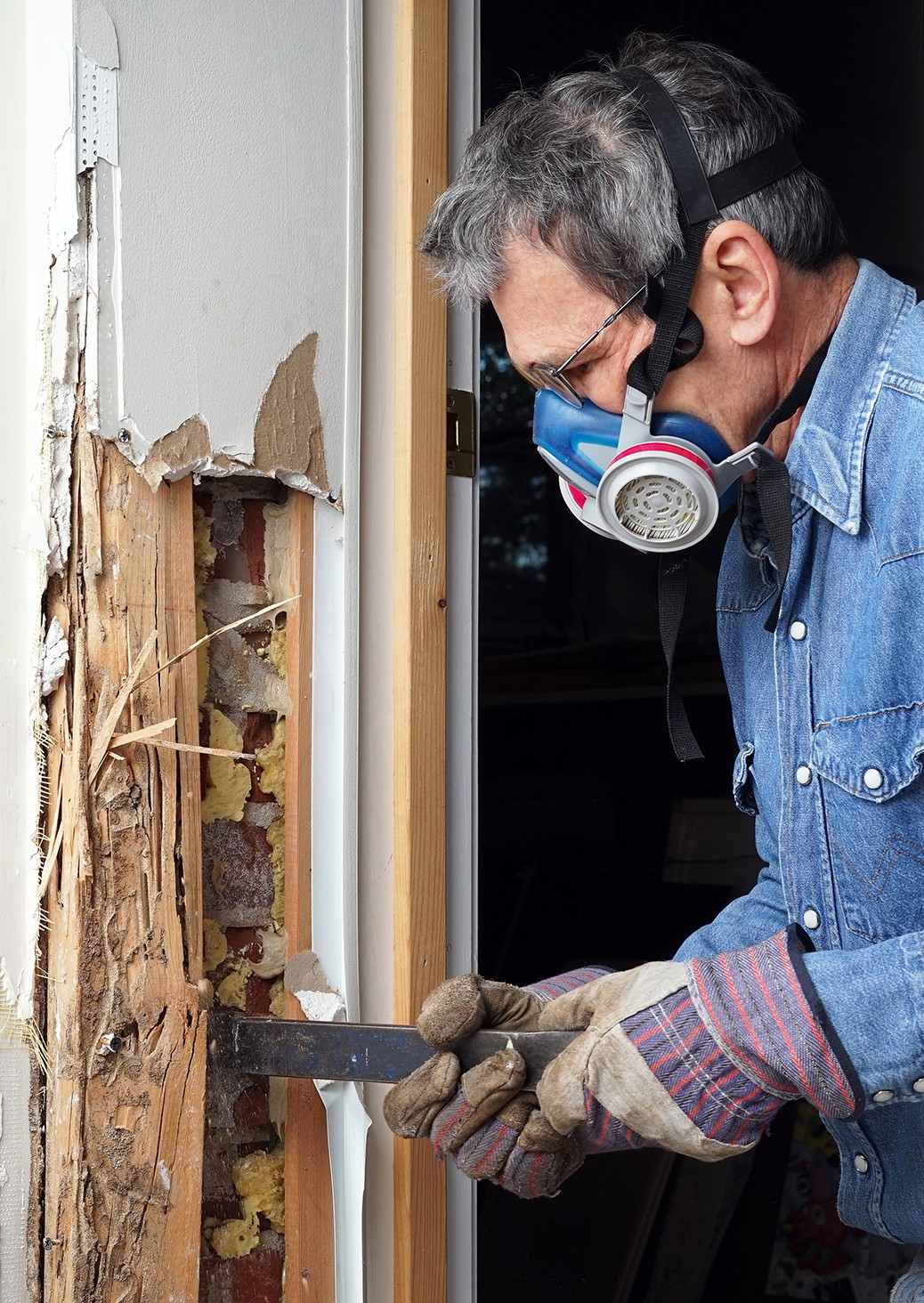24/7 Live Customer Service
CALL OR TEXT (225) 261-4198

About Termites
Termites are widely known as insects that eat wood, but they are actually detritivores: animals that plant waste, decomposing animal parts, and animal feces. Generally, they eat many types of wood, leaf litter, soil, or animal dung. There are roughly 4,000 species of termites in the world, but only about 10% are pests that cause significant economic damage to crops, buildings, and forests.
In the Baton Rouge area, termites can form colonies that can range from a few hundred to several million individuals. Each colony utilizes an organized system of activity to exploit environments and food sources.

Contact Us
Fill out the form below or call at (225) 261-4198 for a free consultation and pest analysis of your home or office.
SENTRICON BAITING SYSTEM
Bayou Cajun utilizes the Sentricon System with Always Active Technology. This superior baiting system only requires annual monitoring once installed, and the stations are already baited with a “colony elimination” termite bait.
LIQUID TERMITE TREATMENT
Bayou Cajun will apply a continuous barrier around the foundation of the structure with a colony elimination termiticide. To prepare for treatment, Bayou may need to trench or drill around the exterior of the structure.
PRECONSTRUCTION TREATMENT
If you are building a new home or structure, Arrow will treat the property for termites during the construction phase. If this treatment is done, your home will have an unbeatable Bayou Cajun Damage Protection Policy.
REAL ESTATE INSPECTION
A Wood Destroying Insect Report (WDIR) is a must when buying, selling, or refinancing a home in South Louisiana!
Learn More
When is termite season?

Termites tend to be more of a problem during warmer weather, though termite damage is not strictly a seasonal thing. If a colony has taken up residence in your home's wood or other cellulose-based materials, then they are eating and destroying it. Termites are a year-round problem, for this reason.
If we were to declare a termite season, it's helpful to know that termite colonies swarm during warmer weather. If a colony has remained in one place for some time and is mature enough to swarm to a new location, they will wait until the weather begins to warm and their chances for survival are greatest. As the weather warms up and rain becomes more common during the Spring, termites often swarm in greater numbers during Spring. It is, for this reason, you'll want to take precautions to make sure your home is protected against swarming termites before they begin to swarm.
Ways to protect your home against termites
The best way to protect your home against termites and termite damage is to contact a qualified pest control company with experience in termite control. Bayou Cajun Pest Control can survey your home to make sure there are not currently termites, then we can help you safeguard your home against future termite infestation. Not only do we treat your home's joints, cracks, and foundation to deter termite activity, but we can help you identify areas that can be blocked off or removed so that termites are not able to easily infest your home.
Ways to protect your home against termites:
Check for cracks in the foundation and in plumbing. Fix or block these entry points.
Remove popular food sources.
Identify areas that may have moisture buildup and find ways to eliminate these sources. Warm, moist areas are perfect breeding grounds for termites.
What to do if you currently have termites
If your home shows signs of termite infestation, the best thing to do is to contact a qualified pest control company. It can be difficult to exterminate termite colonies, and it can require multiple targeted treatments and careful monitoring. Without properly removing a termite colony, they can continue feasting on your home's important structural elements. Fixing a termite problem is not as simple as removing or replacing wood or other damaged areas, as a colony may have retreated deeper into your home or to a new area that doesn't show signs of damage yet.
Common signs of termite infestation:
Observing swarms which do not leave the area
Droppings (they often resemble "sawdust")
Mud tunnels or mud tubes (as termites work to bring additional food sources to and from the colony, they will construct tunnels or tubes to make this process easier. These tubes tend to be about as wide as a pen or pencil, and they are constructed of mud)
Splintering, flaking, or blistering wood (if you can easily see that your home's wood is starting to develop cracks and splinters, especially if the wood appears moist, then this may be a sign of termite damage)
Don't wait too long to treat termites!
Termites move fast, whether they're swarming, building a nest, or eating your home. The longer you wait, the more extensive the damage will be.
If you catch and treat a termite infestation early enough, you can often repair the damage without too much cost or labor. However, waiting too long may mean replacing expensive or structural elements on your home (wooden doors, beams, subfloor, window frames, etc.).